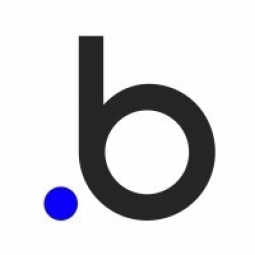Download PDF
Fly Local: Revolutionizing Alaskan Air Travel with IoT
Technology Category
- Sensors - Air Pollution Sensors
- Sensors - Environmental Sensors
Applicable Industries
- Cement
- Equipment & Machinery
The Challenge
Fly Local, a specialty air travel aggregator, was founded with the aim of simplifying and enhancing travel experiences in Alaska. The co-founders, Tyler Flagg, Spencer Flagg, and Mark Lepczyk, wanted to create a platform that focused on unique airlines and destinations within the region. The challenge was to design a user-friendly interface that would empower travelers to discover and book adventurous travel experiences. They also wanted to drive traffic to their partner air carriers and eliminate empty searches. However, given their small staff and the time-sensitive nature of their data, they needed a solution that was not only sophisticated but also easily manageable by a layperson.
About The Customer
Fly Local's customers are travelers seeking unique and adventurous experiences in Alaska. These are individuals who are interested in exploring off-the-beaten-path destinations and are looking for a simple, self-guiding platform to discover and book their travel. They value the ability to easily designate their origin and destination and appreciate the transparency of being able to see their booking options and complete the process on the air carrier's website. Fly Local's customers are also likely to appreciate the company's commitment to driving traffic to local air carriers, thereby supporting the local economy.
The Solution
The solution came in the form of Bubble, a leader in the no-code movement. Bubble's powerful point-and-click web editor and cloud hosting platform allowed the Fly Local team to build a full stack web application. The platform's well-supported plugins, integral relational database, and the ability to leverage the API Connector provided the team with a great deal of flexibility. The team designed a map-centric user interface that prompts users to click on a map marker or type a search to designate an origin and destination. This user flow then reveals the traveler’s options for booking and allows them to click through to the air carrier’s website to complete the process. The platform's capabilities also made it easy for the team to update the sophisticated database, despite their small staff and the time-sensitive nature of their data.
Operational Impact
Quantitative Benefit
Related Case Studies.

Case Study
Smart Water Filtration Systems
Before working with Ayla Networks, Ozner was already using cloud connectivity to identify and solve water-filtration system malfunctions as well as to monitor filter cartridges for replacements.But, in June 2015, Ozner executives talked with Ayla about how the company might further improve its water systems with IoT technology. They liked what they heard from Ayla, but the executives needed to be sure that Ayla’s Agile IoT Platform provided the security and reliability Ozner required.

Case Study
IoT enabled Fleet Management with MindSphere
In view of growing competition, Gämmerler had a strong need to remain competitive via process optimization, reliability and gentle handling of printed products, even at highest press speeds. In addition, a digitalization initiative also included developing a key differentiation via data-driven services offers.

Case Study
Predictive Maintenance for Industrial Chillers
For global leaders in the industrial chiller manufacturing, reliability of the entire production process is of the utmost importance. Chillers are refrigeration systems that produce ice water to provide cooling for a process or industrial application. One of those leaders sought a way to respond to asset performance issues, even before they occur. The intelligence to guarantee maximum reliability of cooling devices is embedded (pre-alarming). A pre-alarming phase means that the cooling device still works, but symptoms may appear, telling manufacturers that a failure is likely to occur in the near future. Chillers who are not internet connected at that moment, provide little insight in this pre-alarming phase.

Case Study
Premium Appliance Producer Innovates with Internet of Everything
Sub-Zero faced the largest product launch in the company’s history:It wanted to launch 60 new products as scheduled while simultaneously opening a new “greenfield” production facility, yet still adhering to stringent quality requirements and manage issues from new supply-chain partners. A the same time, it wanted to increase staff productivity time and collaboration while reducing travel and costs.

Case Study
System 800xA at Indian Cement Plants
Chettinad Cement recognized that further efficiencies could be achieved in its cement manufacturing process. It looked to investing in comprehensive operational and control technologies to manage and derive productivity and energy efficiency gains from the assets on Line 2, their second plant in India.

Case Study
Integration of PLC with IoT for Bosch Rexroth
The application arises from the need to monitor and anticipate the problems of one or more machines managed by a PLC. These problems, often resulting from the accumulation over time of small discrepancies, require, when they occur, ex post technical operations maintenance.





